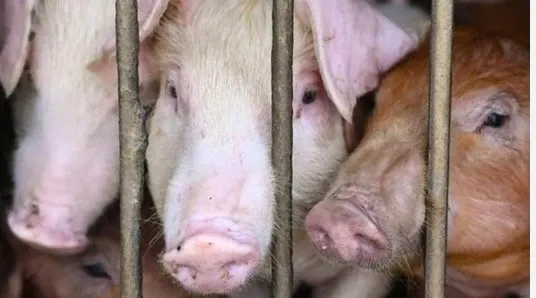How is Vietnam Tackling African Swine Fever Outbreaks?

Synopsis
Key Takeaways
- Vietnam is facing a significant challenge with African swine fever (ASF) outbreaks.
- Over 30,000 pigs have been culled due to ASF.
- The government is urging local authorities to take swift action.
- Public awareness and education are key components of the prevention strategy.
- ASF poses no risk to human health, but it affects the economy significantly.
Hanoi, July 18 (NationPress) - The Prime Minister of Vietnam, Pham Minh Chinh, has issued a directive aimed at mobilizing robust and coordinated actions to combat African swine fever (ASF), as reported by the local daily newspaper Nhan Dan (People) on Friday.
Since the beginning of 2025, more than 514 ASF outbreaks have been reported across 28 out of 34 provinces, resulting in the death or culling of over 30,000 pigs nationwide, according to data provided by the Ministry of Agriculture and Environment.
The directive emphasizes the necessity for local authorities to swiftly identify and eradicate outbreaks, implement strict culling measures, and impose penalties on illegal pig trading and carcass disposal that could exacerbate the spread of the virus, as detailed by the Xinhua news agency.
Veterinary agencies are tasked with guiding farmers, creating expanded safe zones, and ensuring timely reporting of outbreaks. Additionally, various ministries are responsible for funding, monitoring compliance, enforcing anti-smuggling efforts, and educating the public on prevention strategies related to African swine fever.
ASF is an extremely contagious and lethal viral illness that affects both domestic and wild pigs. While it poses no threat to human health and does not impact other animal species, it can lead to significant economic repercussions due to the high mortality rates in pigs and consequent disruptions to trade and production.
The disease is caused by a virus that remains highly resilient in the environment and can persist in various pork products.
The virus transmits through direct contact with infected pigs, their bodily fluids, or indirectly via contaminated materials such as vehicles, equipment, or food waste.
Pigs that are infected may show various symptoms, including high fever, loss of appetite, skin lesions, diarrhea, vomiting, coughing, difficulty breathing, and, in some instances, sudden death.
Although the disease originated in Africa, it has spread to Europe and Asia, with recent outbreaks reported in the Caribbean, creating a global challenge for pig populations.
Currently, there is no effective treatment or vaccine available for ASF, making prevention the essential strategy for control.
It is important to note that ASF does not pose a risk to human health, and properly prepared pork products remain safe for consumption.









